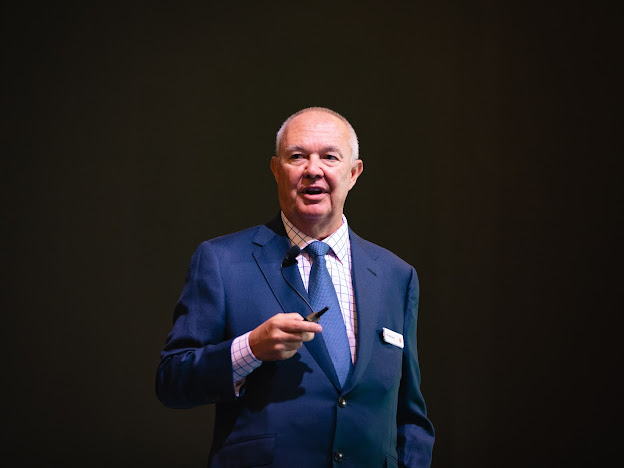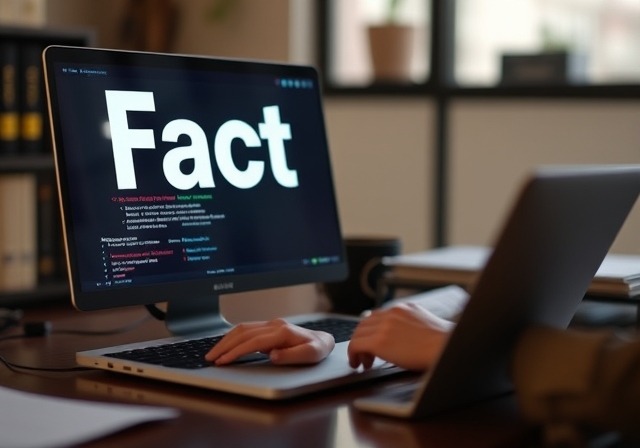The Rise and Fall of Fact Checkers
 by Joe Wallace
by Joe Wallace
City-County Observer Columnist
Over the past decade, the concept of “fact-checking” has evolved from a noble endeavor to a divisive practice, often viewed through a lens of political bias and censorship. Initially designed to combat misinformation in an era of rapid digital communication, fact-checkers were heralded as guardians of truth. However, allegations of selective enforcement, political partiality, and an increasingly fragmented media landscape have tarnished their reputation, culminating in Meta’s recent decision to cease its use of third-party fact-checkers on its platforms. Personally, I recall one of my professors in a marketing class explicitly stating that “all facts are negotiable” which sort of implies that there are no hard facts.
The Origins of Fact-Checking
Fact-checking has long been a staple of responsible journalism. Traditionally, it involved verifying claims made by public figures, media outlets, and organizations to maintain accuracy and public trust. The rise of social media, however, introduced a new urgency. Platforms like Facebook and Twitter became breeding grounds for viral misinformation, from election conspiracies to health-related falsehoods. In response, tech companies partnered with independent fact-checking organizations to flag, downrank, or label disputed content.
This initiative gained momentum during the 2016 U.S. presidential election, when “fake news” entered the public lexicon. Stories with little basis in reality spread like wildfire, influencing public opinion and undermining democratic processes. Fact-checking, backed by algorithms and user reports, seemed a logical solution to counteract this trend.
The Backlash
Despite its good intentions, fact-checking soon became a lightning rod for controversy. Critics argued that the practice was inherently subjective, as determining what constituted “misinformation” often depended on the political and cultural lens of the fact-checkers themselves. Accusations of bias were rampant, with conservatives in particular claiming that platforms disproportionately targeted right-leaning content. Conversely, liberals accused fact-checkers of not doing enough to curb the spread of disinformation.
Another contentious issue was the role of tech giants like Meta in policing speech. Opponents contended that labeling content as “false” or “misleading” equated to censorship, chilling free expression. High-profile instances of fact-checking errors further eroded trust, as legitimate dissenting opinions were sometimes swept into the same category as outright fabrications.
The COVID-19 pandemic added fuel to the fire. Disputes over evolving scientific guidance, vaccine efficacy, and public health mandates highlighted the challenges of fact-checking in real-time. Critics argued that suppressing dissenting viewpoints—even if later proven correct—damaged public trust in both the platforms and the fact-checking process itself.
Meta’s Pivot
In late 2024, Meta quietly announced it would phase out its reliance on third-party fact-checkers. While the company cited a shift toward broader content moderation strategies, the decision underscored the waning effectiveness and mounting controversy surrounding fact-checking initiatives. Instead of employing external validators, Meta plans to focus on user-empowered tools, enhanced AI detection systems, and clearer labeling of potentially harmful content without passing explicit judgment on its veracity.
Meta’s move reflects a broader trend: the realization that fact-checking, as it has been implemented, may not be the panacea for misinformation. The decision has been met with mixed reactions. Free speech advocates welcomed the change as a step toward less intrusive content moderation. Others worry that without rigorous fact-checking, misinformation could once again proliferate unchecked.
Lessons Learned
The rise and fall of fact-checkers offers several takeaways:
- Complexity of Truth: In a pluralistic society, truth is often contested. Efforts to label content as “false” or “true” can oversimplify nuanced debates and alienate audiences.
- Trust Erosion: Fact-checkers’ perceived biases have contributed to the erosion of trust in media and tech platforms. A more transparent and inclusive approach is needed to rebuild credibility.
- Role of Individuals: Ultimately, combating misinformation requires equipping users with critical thinking skills. Media literacy programs may be more effective in fostering informed discourse than top-down interventions.
Conclusion
Fact-checking was a well-intentioned attempt to address a genuine problem, but its execution left much to be desired. Meta’s recent decision marks the end of an era and prompts a reevaluation of how societies combat misinformation. As technology continues to evolve, the focus must shift toward empowering individuals to discern truth for themselves, ensuring that the pursuit of accuracy does not come at the expense of open dialogue.





